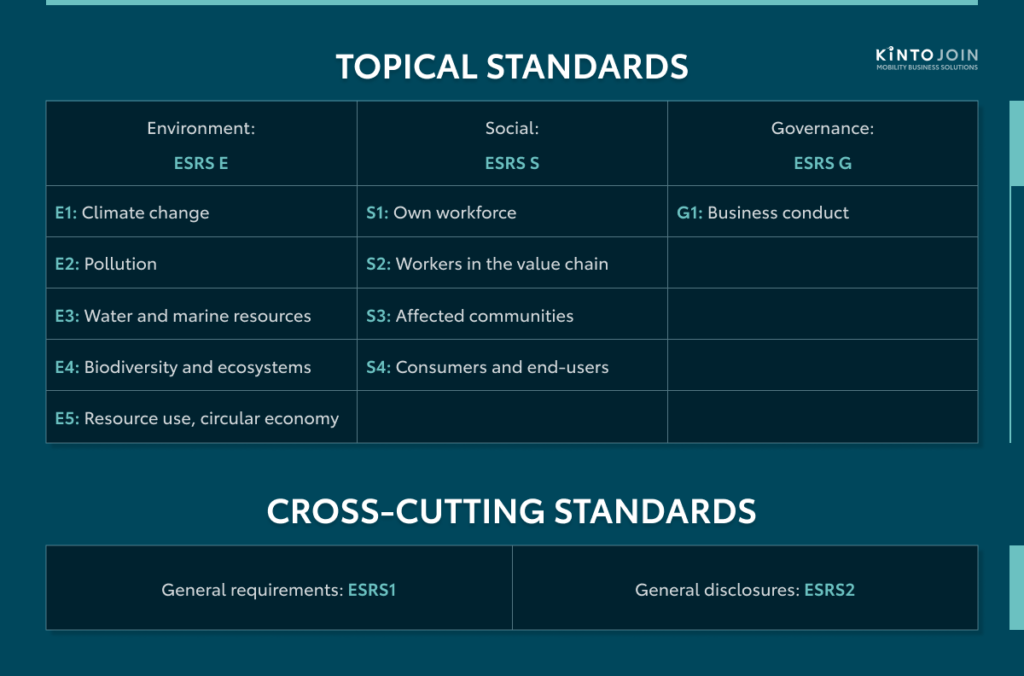Corporate sustainability ideas to improve your ESG reporting ‘score’

Sustainability has become a global imperative, with governments worldwide making significant strides towards creating more eco-conscious cities and societies. In the quest to combat climate change, over 90 countries have set ambitious net-zero emissions targets, demonstrating a shared commitment to mitigating the most devastating effects of this global change. This collective effort has inevitably spotlighted businesses, compelling them to embrace sustainability not merely as a choice but as a necessity.
However, companies often grapple with uncertainty about what precisely they should do:
- What standards must they comply with?
- What do these standards entail?
- Where should they begin?
- How can sustainability become an integral part of their daily operations?
Understanding Sustainability Standards and Policies
The first step in unraveling the complexity of “becoming more sustainable” is comprehending the regulations behind sustainability expectations.
A promising starting point is the European Green Deal, a package of policy initiatives aiming to steer the EU towards a green transition, ultimately achieving climate neutrality by 2050.
As part of ESG reporting and in alignment with the European Green Deal, the EU mandates large and listed companies to regularly publish reports on how their activities impact people and the environment. To this end, The European Commission introduced the European Sustainability Reporting Standards (ESRS) for use by all companies subject to the Corporate Sustainability Reporting Directive (CSRD).
Companies required to report on sustainability under the CSRD include:
- 1. All large companies, irrespective of capital market orientation, with more than 250 employees and more than 40 million EUR in net turnover or 20 million EUR in assets.
- 2. All capital-market SMEs, except for micro-enterprises, which are not covered by the CSRD and, therefore, are not expected to report under ESRS
The Role of ESRS
The ESRS aims to enhance the scope and quality of corporate sustainability reporting, promoting sustainable development through transparency. As a result, stakeholders, particularly investors, other companies, and society, should gain deeper insights into companies’ business practices.
However, the impact of the ESRS goes beyond reporting requirements. Furthermore, companies are also mandated by ESRS to disclose whether they have improved their sustainability performance and further developed their sustainability management.

General Requirements and Disclosures for ESG Reporting
- Foundational ESG practices, including ESG policies, commitments, data collection and verification methods, reporting periods, data accessibility, future ESG goals, external assurance processes, etc.
- The business overview – covers governance structure, ownership, market presence, operational locations, supply chain, products and services, customer base, employee profile, health and safety practices, ethical business practices, certifications and awards, etc.
Topical Requirements for ESG Reporting
Under topical requirements, organizations should offer an overview of their current environmental, social, and governance practices, future ESG goals, actions taken to improve their “sustainability score,” and more.
ESG Reporting as a Means to Corporate Sustainability
- Assess the impact of your operations on the environment, evaluating emissions, waste management practices, and natural resource usage (energy, water, etc.).
- Examine your commitment to social responsibility, including labor practices, employee well-being, compensation practices, product safety and quality, and community engagement.
- Evaluate your governance sustainability, encompassing board diversity and independence, stakeholder rights and responsibilities, data security, and cyber risks.
Reducing your Climate Change impact
Climate change is a primary driver behind the European Green Deal, making it a crucial starting point. This means continually seeking innovative ways to reduce carbon emissions.
For instance, consider the impact of daily commuting to your workplace on your carbon footprint.
—Did you know?: Passenger transportation contributes to the total carbon footprint (+34 Billion Tons per year) with 4,6 Tons of CO2 per car.—
Now envision the potential to reduce the number of cars on the road by 25%, 50%, or even a staggering 75%. You can achieve this by encouraging sustainable commuting practices like carpooling, cycling, and walking. To help you revolutionize employee commuting, we’ve created KINTO Join—a sustainable commuting platform that:
- 1. Connects employees with shared commuting routes, reducing the number of vehicles traveling to your workplace.
- 2. Validates eco-friendly journeys (carpooling, walking, and cycling), incentivizing environmentally conscious commuters.
- 3. Quantifies CO2 savings, enabling easy reporting of your contribution to zero emissions and eligibility for government subsidies.
Learn more about KINTO Join here.

Ideas to Improve Other ESG Practices
Pollution
- To address pollution, implement zero-waste practices in offices or manufacturing facilities by reducing, reusing, and recycling materials.
- Enhance indoor air quality in office spaces by installing air quality monitoring systems.
Water and Marine Resources
- Support marine conservation efforts by participating in beach cleanup events or partnering with organizations dedicated to ocean protection.
Biodiversity and Ecosystems
- Conduct biodiversity assessments on company-owned lands to identify and protect endangered species and habitats.
Resource Use and Circular Economy
- Implement take-back or recycling programs for products at the end of their lifecycle, encouraging customers to return items for recycling or refurbishing.
- Additionally, start a carpooling program to motivate employees to travel to work together, thus reducing overall fuel consumption.
Own Workforce
- Offer flexible work arrangements, such as remote work options or flexible hours, to improve work-life balance for employees.
- Provide mental health resources and support, such as Employee Assistance Programs (EAPs), to promote the well-being of your workforce.
Workers in the Value Chain
- Provide training to suppliers on fair labor practices, worker safety, and human rights to ensure ethical treatment throughout the value chain.
- Conduct regular audits of suppliers to assess compliance with labor standards and social responsibility requirements.
Affected Communities
- Prioritize hiring from within the local communities where your company operates to create job opportunities and strengthen community ties.
- Allocate a percentage of profits or resources to community development projects, such as building schools or supporting healthcare initiatives.
Consumers and End-Users
- Add sustainability labels or certifications to products, providing consumers with information on the environmental and social impacts of their purchases.
- Launch educational campaigns to inform consumers about sustainable product usage and responsible disposal methods.
Business Conduct
- Establish a confidential whistleblower hotline for employees to report ethical concerns or misconduct within the company.
It's Action Time: Make Corporate Sustainability Ideas a Reality
Embracing sustainability isn’t just an option; it’s a responsibility we all share. To commence this journey start small but start now. Take actionable steps to reduce your carbon footprint, enhance workplace well-being, and contribute to your local community.
Begin with the ideas we’ve shared in this blog post, but do not stop there. Furthermore, make sure that you are continuously reviewing your current practices through a sustainability lens and thinking about small actions you can take today to make a big impact tomorrow. Additionally, share your ideas! Remember: the simple changes you make every day not only align with sustainability standards but also exemplify your dedication to a brighter and more sustainable tomorrow.
Learn more about how your employees’ commuting habits can impact your ESG reporting score here
